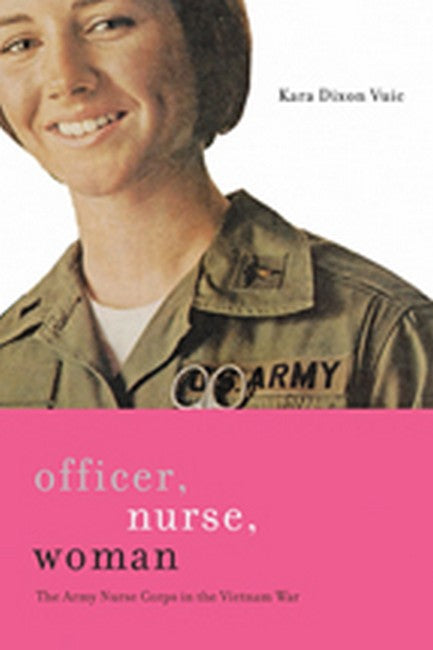'''I never got a chance to be a girl,' Kate O'Hare Palmer lamented, 34 years after her tour as an army nurse in Vietnam. Although proud of having served, she felt the war robbed her of her innocence and forced her to grow up too quickly. As depicted in a photograph taken late in her tour, long hours in the operating room exhausted her both physically and mentally. Her tired eyes and gaunt face convey the effects of treating countless patients, some dying, some maimed, all, like herself, forever changed. Only fourteen months long, her tour in Vietnam profoundly affected her life and her beliefs.''Such vivid personal accounts populate historian Kara Dixon Vuic's compelling look at the experiences of army nurses in the Vietnam War. Drawing on more than 100 interviews, Vuic allows the nurses to tell their own captivating stories, from their reasons for joining the military to the physical and emotional demands of a horrific war and postwar debates about how to memorialize their service. Vuic also explores the gender issues that arose when a maledominated army actively recruited and employed the services of 5,000 nurses in the midst of a growing feminist movement and a changing nursing profession. Women drawn to the army's patriotic promise faced disturbing realities in the virtually allmale hospitals of South Vietnam. Men who joined the nurse corps ran headlong into the army's belief that women should nurse and men should fight.Officer, Nurse, Woman brings to light the nearly forgotten contributions of brave nurses who risked their lives to bring medical care to soldiers during a terrible -- and divisive -- war.''Solid, engaging, insightful scholarship. To see the effective mixing of gender history and social history with military history is refreshing and welcome. Vuic addresses a deep hole in the scholarship on the Vietnam War.'' -- William T. Allison, Georgia Southern University''Officer, Nurse, Woman contributes mightily to the historiography of military nurses, of women in the military, and women in the paid work force after World War II.'' -- Elizabeth Hillman, University of California Hastings College of the Law

